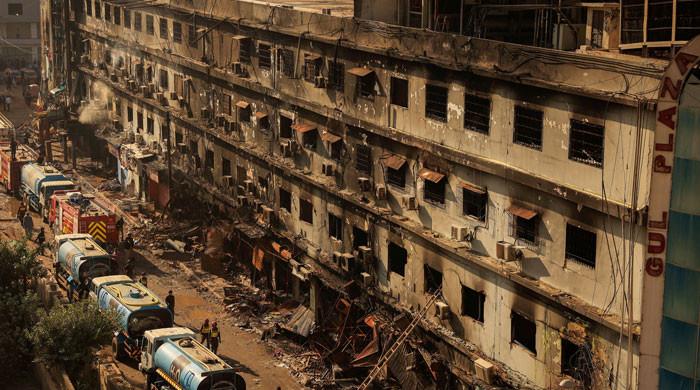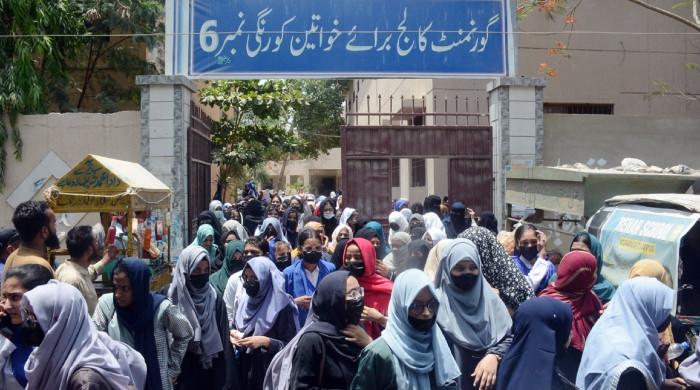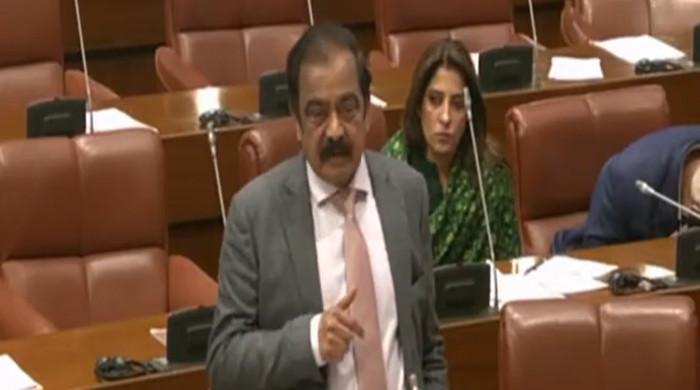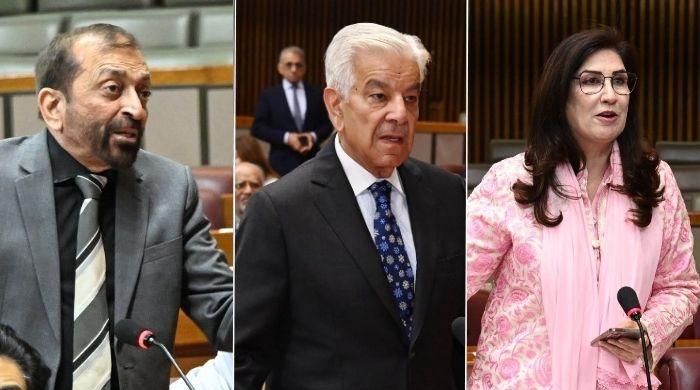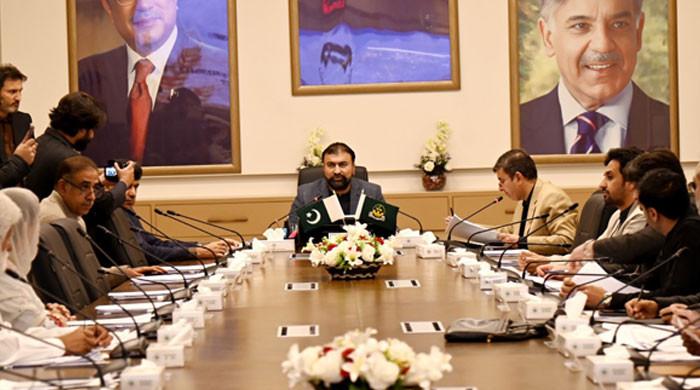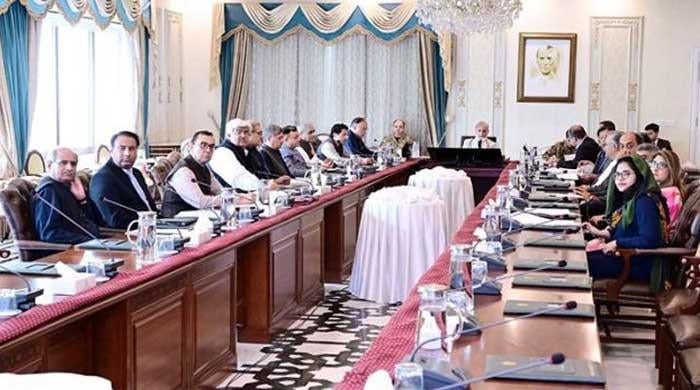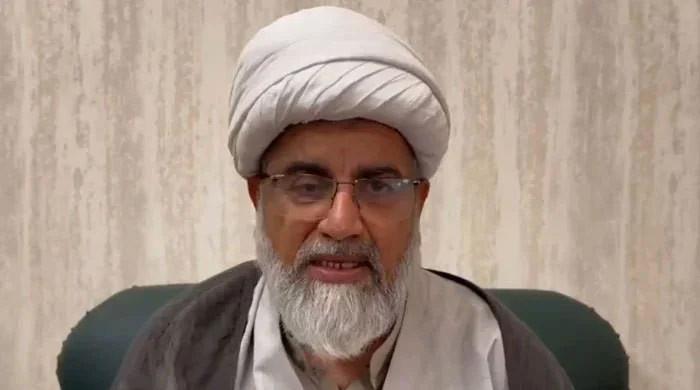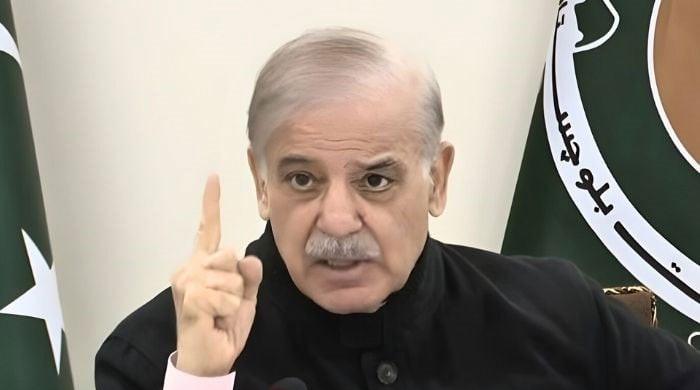TTP a matter Pakistan must take up, not Afghanistan: Taliban spokesman
Zabihullah Mujahid says it is "up to Pakistani ulema and govt to decide on the legitimacy or illegitimacy of their war"
August 28, 2021

- Zabihullah Mujahid reiterates the Taliban will not allow anyone the use of Afghan soil against another country.
- Says, however, that the TTP is a matter for Pakistan to take up.
- Taliban spokesman hopeful of announcing government "within a few days".
- Taliban do not wish for war in Panjshir, but a fight will be "swift" since the valley is surrounded: Mujahid.
Taliban spokesman Zabihullah Mujahid has said that the issue of the Tehreek-e-Taliban Pakistan (TTP) is one that the Pakistan government must resolve, not Afghanistan.
Mujahid's remarks came during an interview with Geo News on programme "Jirga", aired on Saturday night.
Show host Saleem Safi asked the spokesman if the Taliban will speak to the TTP to not engage in conflict with Pakistan.
In response, Mujahid said: "The future government will have the rightful say about this. However, our principle stance is that we will not allow the use of our soil by anyone for destroying peace in someone else's country."
He said that if the TTP consider the Afghan Taliban as their leaders, "they will have to listen to them, whether they like it or not".
The Taliban spokesman added: "The issue of the TTP is one that Pakistan will have to deal with, not Afghanistan. It is up to Pakistan, and Pakistani ulema and religious figures, not the Taliban, to decide on the legitimacy or illegitimacy of their war and to formulate a strategy in response."
'How soon can one expect a government in Afghanistan?'
When asked how soon people can expect the formation of a government in Afghanistan, the spokesman said that full-fledged efforts are currently underway in this regard, but that some minor obstacles are causing a delay.
"First of all, entering Kabul all of a sudden and taking over governance like this was unanticipated. We desire to hold wide-ranging talks regarding the formation of a government, so that a strong government can form," he said.
Mujahid also indicated the Taliban's desire for an "end to war", and the "creation of such a system, with everyone's input, that represents the wishes of the people".
"We have made considerable progress in this regard, but work is still underway," he said.
"Discussions are being held on all aspects of a government," the spokesman said, adding that he hopes that the Taliban will be ready "within a few days" to make an announcement in this regard.
Mujahid noted that the delay has caused hindrances in day-to-day operations and matters of trade and diplomacy, and so the Taliban have "engaged all their efforts in forming a government as soon as possible".

Progress in talks with Afghan political leaders
Regarding talks with former Afghan president Hamid Karzai and former chief executive officer, Dr Abdullah Abdullah, besides former vice presidents Yunus Qanuni and Abdul Rashid Dostum, the Taliban spokesman said that their advice is being taken.
He said that the Taliban wish for those to be part of the government who have the support of the people and enjoy popularity and will avoid the inclusion of people who were at the centre of conflict in the past.
"We are consulting all leaders present in Kabul. We are in touch with them, and their recommendations are important to us," he added.
Mujahid said that the Taliban also wish for "new faces" to be part of the government.
To a question on what each side has demanded of the other, the Taliban spokesman said that the group will move forward keeping in view the input given by the political leaders and will take measures in light of the same.
What does the future hold for Rashid Dostum?
When Safi asked what the future holds for Rashid Dostum if the view is for the inclusion of only acceptable figures, Mujahid said: "The people who were part of the government in the last 20 years have worked for Afghanistan to some extent but do not enjoy the overwhelming support of the people."
"We wish to begin a new chapter and include people who do not only enjoy popular support, but are deserving of being the people's representatives.
"But this does not in any way mean that all the past leaders will be sidelined. We will routinely consult them and seek their advice," he said.
'Is a high-level govt commission still in the making?'
Mujahid said that the Taliban had heard talks of a high level commission to oversee government affairs, but such a body has yet to be formed.
"We wish for matters to resolve through dialogue and for this, a mechanism is needed to facilitate such talks," he said.
Control of Panjshir valley
On control of Panjshir valley, where an anti-Taliban resistance under Ahmed Massoud of the National Resistance Front has been mounted, Mujahid said that the Taliban are "60% confident that matters can be resolved through talks".
"We have put to use all available resources to make this possible. We have consulted ulema, and former jihadi leaders, and a regular exchange of messages is taking place," he said.
The spokesman hoped that it would not boil down to a war, similar to how the Taliban were able to take over other Afghan districts and provinces "without the use of force". "We hope to bring Panjshir under the control of Kabul, much like this," he said.
"This way the honour of the people there will remain intact and we will accord them respect," he added.
Mujahid said that in the exchange of messages with leaders in Panjshir the Taliban had indicated they do not wish a war.
"Even if a war does take place, it will be swift, because our fighters have Panjshir surrounded," he said, adding that they are present in Badakhshan, Paghman and Takharo Parwan.




